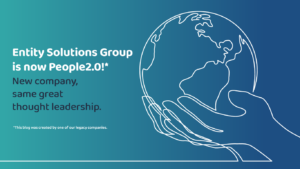So you have finally decided to make the big move to Australia to further your career. Once all the announcements have been made to family and friends, the champagne corks have been popped and the moving boxes have begun to crowd your home, some of the bigger questions will start to creep into your mind… ‘Where will I live?’ or ‘How do I set myself up to start work?’ We have made a list of the most common concerns people have when they are in the process of moving to Australia for work. Our checklist and advice will help you to tackle them quickly and easily.
1. Accommodation – One of the first items on your checklist when you plan to move to any new country will be to find accommodation. Depending on how much lead time you have, your first point of call to find a property to live in will be websites such as www.realestate.com.au and www.domain.com.au. If you decide that you would like to house share, you’ll find all the latest advertisements for available share houses on www.flatmates.com.au.
2. Obtaining a Tax File Number – You will also need to obtain a tax file number in order to begin working and getting paid right away. Go to the Australian Tax Office website, where you can download an application form. This should be high on your list of priorities, as you won’t be able to work without a TFN.
3. Setting up your bank account – Next, you’ll need to set up an Australian bank account. There are four major banks in Australia – Commbank , NAB, Westpac and ANZ, and many smaller banking institutions and credit societies you can choose from. It’s a good idea to look into this carefully to find a banking institution that’s right for you.
4. Setting up your Super Account – In Australia, it is a requirement of law that each employee must be paid superannuation. There are many superannuation providers from which to choose, however it is important to do your research and find one that suits your needs. Be sure to look into the fees you will be paying with your super fund of choice and the types of investments the fund makes. Check out ASIC’s guide to selecting a super fund here.
5. Organising utilities – If you are renting a property on your own rather than moving into shared accommodation, you will need to set up your utilities – water, gas, electricity and telephone. In Australia, there are many different providers for some of the utilities, so it is necessary to do your research in order to find the lowest price. Click here for some handy hints about setting up utilities in Australia.
6. Where to get furniture quickly and cheaply – You can find cheap furniture for your new home by checking out Gumtree, an online local classified advertising and community site. On Gumtree, you can buy and sell used and new furniture, as well as a variety of items. Do keep in mind that you will need to organise to collect your purchases at your own cost.
7. Choosing a school for your children – Choosing the right school for your children is important wherever you live, however it is of particular importance when moving to a new country where there may be language barriers. Contact the local council in the area you’re moving to and they will be able to send you a list of local schools. It’s important to keep in mind that depending on your visa sub- class and the Australian state in which you will be living, you may be required to pay extra fees in order for your children to attend a public school. Ensure that you check the appropriate education department website for your state or territory and are fully aware of any fees you may incur. http://www.expatarrivals.com/australia/education-and-schools-in-australia
8. How to get started driving in Australia – It’s never easy when you drive in another country, particularly if many road rules are different. To get started, contact the relevant government department in your state from the list below:
NSW: http://www.rms.nsw.gov.au/roads/licence/driver/
WA: http://www.transport.wa.gov.au/licensing/my-drivers-licence.asp
SA: https://www.sa.gov.au/topics/driving-and-transport/drivers-and-licences
QLD: http://www.tmr.qld.gov.au/
TAS: http://www.transport.tas.gov.au/licensing/getting-a-licence
If you are thinking of purchasing your own car, a couple of great places to start are at Drive and Carsales. You will be able to compare costs of new, used, dealer demo and privately owned vehicles.
9. Finding a GP/Healthcare Services – Australia has a great public healthcare system, however free healthcare is dependent upon your residency status. As a permanent resident, you will have access to this service but if you are a temporary resident you may need to obtain a minimum level of Private Health Cover (depending on agreements between your country of origin and Australia). Once you arrive, you should also contact your local medical centre to register with a General Practitioner, as in high density areas GPs often have full patient lists. For more information, visit the Medicare website.
10. Support Services – Contact the local council in your new area for any additional support services you may need. Support services are varied and cover a range of needs from Maternal and Child Health Nurse Centres to Counselling and support groups.
Moving to a new country can be overwhelming with so much to organise, however having a plan in place will help ease your mind, knowing it can all be done one step at a time. Make the most of resources available to you, such as your Migration Agency. Your Migration Agents will be able to offer sound advice based on extensive experience guiding people who have set out on the big journey you are about to embark upon. Contact Entity Solutions’ registered Migration Agents on (03) 9600 0333 or via email at enquiries@entitysolutions.com.au



